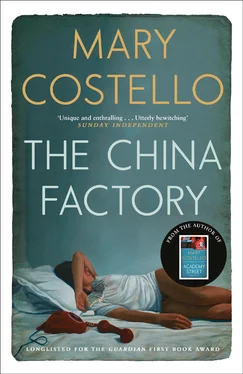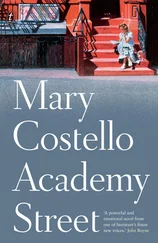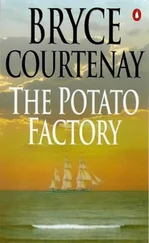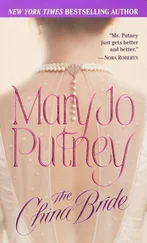Mary Costello - The China Factory
Здесь есть возможность читать онлайн «Mary Costello - The China Factory» весь текст электронной книги совершенно бесплатно (целиком полную версию без сокращений). В некоторых случаях можно слушать аудио, скачать через торрент в формате fb2 и присутствует краткое содержание. Год выпуска: 2015, Издательство: Canongate Books, Жанр: Современная проза, на английском языке. Описание произведения, (предисловие) а так же отзывы посетителей доступны на портале библиотеки ЛибКат.
- Название:The China Factory
- Автор:
- Издательство:Canongate Books
- Жанр:
- Год:2015
- ISBN:нет данных
- Рейтинг книги:5 / 5. Голосов: 1
-
Избранное:Добавить в избранное
- Отзывы:
-
Ваша оценка:
- 100
- 1
- 2
- 3
- 4
- 5
The China Factory: краткое содержание, описание и аннотация
Предлагаем к чтению аннотацию, описание, краткое содержание или предисловие (зависит от того, что написал сам автор книги «The China Factory»). Если вы не нашли необходимую информацию о книге — напишите в комментариях, мы постараемся отыскать её.
In these twelve haunting stories award-winning writer Mary Costello examines the passions and perils of everyday life with startling insight, casting a light into the darkest corners of the human heart.
The China Factory — читать онлайн бесплатно полную книгу (весь текст) целиком
Ниже представлен текст книги, разбитый по страницам. Система сохранения места последней прочитанной страницы, позволяет с удобством читать онлайн бесплатно книгу «The China Factory», без необходимости каждый раз заново искать на чём Вы остановились. Поставьте закладку, и сможете в любой момент перейти на страницу, на которой закончили чтение.
Интервал:
Закладка:
After the dinner her father and brother go back out to the sheep and she walks around the back of the house. There are a few puffy clouds at the far end of the sky. The afternoon is very still, and the day seems long. She goes back inside, to the sitting room and sits at the piano. The room is full of sunlight. She practises her scales three times, and the arpeggios three times, and then the piece from her exam book three times, too. When she is finished she opens the sideboard and takes out the wedding album. Her father and mother are about to walk down the aisle. She knows their whole story — how they met, their wedding, their honeymoon. She has asked her mother many times. She has read, too, the little piece clipped from the local newspaper. Her mother’s dress was embroidered French brocade, ballet length. She carried a bouquet of pink carnations and maidenhead fern. There were seventy guests at the wedding breakfast. The happy couple toured the south of Ireland on their honeymoon.
She turns the pages slowly, searching their faces. Their shyness almost makes her cry. And knowing that their wedding day is over, over and gone forever, and they will never be this happy again. There is a photograph taken on the honeymoon at the back of the album. They are standing at the bonnet of a black car, smiling. The lakes of Killarney are behind them. Her mother is wearing a white sleeveless blouse and her Dorene skirt, the pale grey wool skirt that hangs under plastic in her wardrobe. It is the most beautiful skirt, with green and pink lines, the same bright pink as a stick of rock. Sometimes when they are going on a day out to the seaside she runs into her mother’s room and tells her to put it on. She thinks if her mother wears the Dorene skirt she might forget all about the work and the arguments and the five kids, and she and her father might be in love again, and happy. She gazes at their faces in the honeymoon photograph. They do not know what is ahead of them. If they knew what was ahead of them they might never have left the lakes of Killarney.
She hears her father’s voice and looks out the window. A lamb has escaped through the gate and her brother runs after it and scoops it up. She puts the wedding album away and goes to the record player and puts on a John Denver record. His photograph is on the cover. She sits back on the couch and he starts to sing. Rocky Mountain High. Sunshine on my Shoulders. She thinks of her father out in the fields all summer long. Sounds from the kitchen drift down the hall: the clatter of delft, the radio, her mother’s voice. She gets up and sits at the piano and places her fingers on the keys. She hears the back door close, and footsteps coming around the gable end. She plays high C. Her mother is crossing the yard. She plays each note, C, B, A, C, B, A and hums. She feels the sun on her mother’s face. She closes her eyes. You fill up my senses .
In the late afternoon her mother drives her and her sister to town for their weekly music lesson. Did ye practise yere piano pieces? her mother asks. Yes, Mammy, she says. Her sister has her knees up on the back of the seat and hardly answers.
She goes in first for her music lesson, and her mother and sister walk down the street to the supermarket. Mrs Walsh, her teacher, is strict but every week she praises her. Good girl, she says when she plays her scales. Mr Walsh enters and sets down a tray with a cup and saucer, a tiny jug of milk, a plate with French toast and a pot of tea, kept warm under a tea cosy. It smells delicious and the crunch of the French toast makes her mouth water. The room is very warm. Mrs Walsh is sitting so close to her she can hear her swallowing. She follows the sound of the tea and toast travelling down into Mrs Walsh’s stomach and the click of the knife and fork on the plate and the cup touching down on the saucer, and when she starts playing her exam piece she cannot bring her mind back, and her fingers trip each other and she makes mistakes on nearly every line.
Then it is her sister’s turn. She and her mother sit under a tree in the church grounds, and wait. Her mother takes off her sandals. The air is heavy and silent, as if there is something between them, waiting to be said. Her mouth goes dry. Suddenly she knows what it is. She has been waiting for it for weeks. Her mother is sick. One morning a month ago, she woke up early and walked along the landing to the bathroom, very sleepy. Her mother was walking ahead of her and did not hear her coming behind. Her mother’s feet were bare. Her nightdress came to her knees. And then she saw the blood, bright and fresh, at the back of her mother’s nightdress. She froze. Her mother kept on going and turned into the bathroom.
An old lady walks by and smiles at them and enters the church. Her mother is leaning against the tree. She watches her closely, afraid that any minute now she will clear her throat and start to speak the dreadful news. But her mother just tilts her head back and closes her eyes. She wonders if cancer makes you tired. That day of the bleeding her mother was pale and quiet. She watched her all the time; she followed her around the kitchen and outside for turf. That night she could not sleep. She lay listening to the sounds of the house and praying for her mother and waiting for morning to come. In the dark she remembered all the things her mother had ever told her. She imagined the small girl her mother was, and the dining-room table set for the funeral meal and the bird flying out the window with the ivy in its beak. She doesn’t know how anyone could eat a meal after burying a mother.
Her sister crosses the street after her music lesson. Her mother has dropped off to sleep against the tree. If her mother has cancer and if she dies, then they will be the same — they will both have had a dead mother. She and her sister rouse her mother now. She hops up quickly, her eyes bright, and she looks strong again. Her legs are strong. Her voice is strong. On the way back to the car they buy three Super Split ice creams and on the drive home they are quiet and content, concentrating on the ice creams. She tries to make hers last, but she keeps looking over at her mother and she licks too hard and too fast. Her mother is talking about what has to be done when they get home. She thinks the danger has passed and that her mother might be okay after all. If her mother is okay she will thank God for the rest of her life.
Late in the evening she finds her brother sitting on the wall of the pen. Captain is lying at the edge of the yard, his head resting on his paws, his eyes following her. She can hear the engine of a tractor out on the main road. The day’s work is done, and her sisters and small brother are inside, playing, and her father is drifting around the farm — closing gates, tidying the shed, folding old fertiliser bags.
— What happened? she asks her brother. The pen is filthy and wet from the sheep dirt, but it is not that. Where did all the blood come from? she asks. What were ye doing?
— Squeezing the lambs, he says.
— What’s that? she asks, pointing to the corner. There is a heap of blood and guts in the dirt, and little circles of grey wool. They are like woollen hats for tiny dolls.
— That’s where he cut them underneath with the penknife. He cut them and squeezed out the little yokes. He had to pull out the guts with the pinchers.
She cannot look at him. One day he hurt himself on the bar of his bicycle on the way home from school. Did you hurt yourself underneath? her grandmother asked him when they got home. He couldn’t talk with the pain. She remembers when her mother used to bath herself and her brother together on Saturday nights. She knows that the underneath in boys is soft and easily hurt.
She is scraping the sole of her sandal on the edge of a brick. She is afraid to look, but still she turns her head a little towards the corner. The flies are swarming around. The guts are like short fat worms, creamy-pink and shiny, with little veins all over them. There are dozens of small pale balls, like raw meat, among them. And the little wool caps. She presses her hand on her belly button and for a second she cannot breathe.
Читать дальшеИнтервал:
Закладка:
Похожие книги на «The China Factory»
Представляем Вашему вниманию похожие книги на «The China Factory» списком для выбора. Мы отобрали схожую по названию и смыслу литературу в надежде предоставить читателям больше вариантов отыскать новые, интересные, ещё непрочитанные произведения.
Обсуждение, отзывы о книге «The China Factory» и просто собственные мнения читателей. Оставьте ваши комментарии, напишите, что Вы думаете о произведении, его смысле или главных героях. Укажите что конкретно понравилось, а что нет, и почему Вы так считаете.












